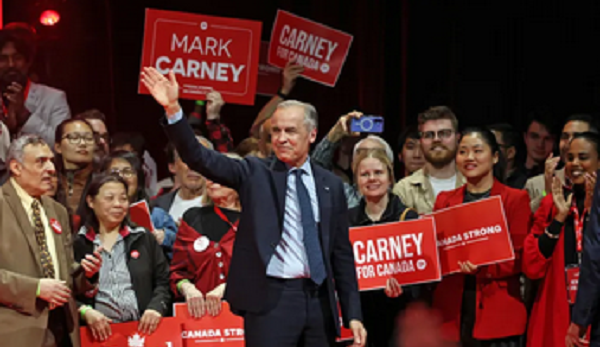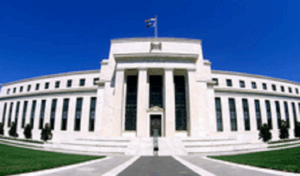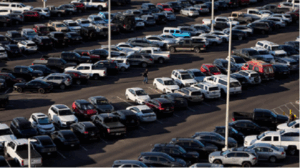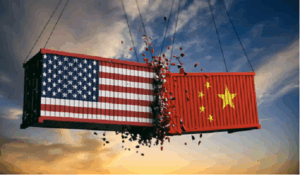Liberals’ win attributed to focus on Trump’s trade war
From his campaign kick-off speech at Rideau Hall to his frantic final week crisscrossing the country, Liberal Leader Mark Carney kept his focus on a single topic: Donald Trump.
The U.S. President’s talk of Canada becoming the 51st state had upended the political landscape even before Mr. Carney was sworn in as Prime Minister in March, fuelling the dramatic turnaround for a Liberal Party that had been trailing well behind the Conservatives for months under former leader Justin Trudeau.
Rather than running on the Liberals’ 10-year record in power, Mr. Carney ran on his economic credentials as a former business executive and central bank leader. Mr. Carney was, he said again and again, the best person to lead Canada through an existential crisis.
In the end, the strategy secured the Liberals a fourth consecutive election win. Mr. Carney was also elected for the first time as a member of Parliament in the Ottawa riding of Nepean.
In his victory speech at Ottawa’s TD Place arena, Mr. Carney acknowledged that millions of Canadians voted for another option. He vowed that he would do his best to represent all Canadians and all parts of the country.
He also said there will be difficult times ahead as Canada works out its trade issues with the United States.
“When I sit down with President Trump, it will be to discuss the future economic and security relationship between two sovereign nations, and it will be with our full knowledge that we have many, many other options than the United States to build prosperity for all Canadians,” he said.
While Liberals celebrated the win, several of the party’s incumbents were defeated by Conservative candidates in close-fought Ontario ridings, including in ridings north of Toronto such as York Centre and Vaughan-Woodbridge.
The Liberals also lost ground to the Conservatives in northern and southwestern Ontario.
In Alberta, the Liberals secured one seat in Calgary and another in Edmonton, leaving the party’s representation in the province unchanged. The party had hoped for a stronger showing.
Edmonton mayor and former federal Liberal cabinet minister Amarjeet Sohi was unsuccessful in Edmonton Southeast and Liberal incumbent George Chahal lost his seat in Calgary McKnight.
During the campaign, Mr. Carney used his daily news conferences to announce a string of policies that he said would help boost the Canadian economy during a trade war.
His rally speeches put the situation in more dire terms: “President Trump is trying to break us, so that America can own us,” he repeatedly warned.
As both Liberal Leader and Prime Minister, he used the office to his political advantage. He suspended his campaign three times to return to Parliament Hill in response to various American tariff moves. The Liberals also made government policy decisions during the campaign, including approving retaliatory tariffs on U.S. vehicles.
His main rival, Conservative Leader Pierre Poilievre, aimed to keep the focus on what he viewed as the many failures of the Liberals when it comes to managing economic files. He accused the government of overspending and doing a poor job on housing, immigration and energy policy.
Mr. Poilievre sought to channel one of the most historically powerful messages for toppling a government that is long in the tooth: It’s time for a change.
Mr. Carney’s challenge was to capture some of that appetite for change, even though, as Mr. Poilievre regularly pointed out, his team of ministers, MPs and advisers was largely the same as under Mr. Trudeau.
Alex Marland, a political science professor at Acadia University, said Canadian history shows that replacing the leader of an unpopular party doesn’t often satisfy voters’ desire for change.
“It’s hard, very hard. And somehow, he managed to do it. But it’s because of this existential threat, this outside actor,” he said in an interview Monday.
A key moment in the election campaign took place early on: Mr. Carney spoke by phone with Mr. Trump for the first time as Prime Minister.
The March 28 summary from both sides was positive. Mr. Carney said the President “respected Canada’s sovereignty” and had agreed to trade talks with Canada after the election.
Mr. Trump didn’t call Mr. Carney governor, as he had Mr. Trudeau. It was a clear win for the Liberal Leader.
Late in the campaign, it emerged that Mr. Trump did in fact raise Canada becoming the 51st state of the U.S. during that call. Mr. Carney confirmed that, but said it was the final outcome that mattered.
His critics said his selective summary of the call showed the Liberal Leader can’t be trusted.
On the economic management front, Mr. Carney’s proposals were often unclear.
During the race for the Liberal leadership, he made vague comments that were interpreted in some media reports as a promise to balance the budget within three years.
Over time, Mr. Carney clarified that he was only planning to balance the operating budget, which is not how federal finances are currently presented.
It was only after the debates that Mr. Carney revealed the details of his plan, effectively limiting attention on his spending proposals.
The platform outlined nearly $130-billion in new spending and tax cuts over four years, resulting in larger projected deficits over the coming years than had been presented by the Liberal government in its December fiscal update.
Mr. Poilievre seized on the numbers, saying they showed Mr. Carney would be an even bigger spender than Mr. Trudeau.
The post-debate fight over platforms did not appear to make a significant difference in the race.
Heading into the campaign, some expected Mr. Carney’s weakness speaking French would hurt him.
Stéphanie Chouinard, a Queen’s University associate professor of political science, said Mr. Carney’s French improved during the campaign.
“It ended up being far less of a factor,” she said.
Shortly after polls opened Monday, Mr. Trump posted on Truth Social that Canadians should support becoming “the cherished 51st. State,” saying it would be all positives and no negatives.
Mr. Poilievre responded by calling on the President to “stay out of our election,” while Mr. Carney posted online that “This is Canada – and we decide what happens here.”
This article was first reported by The Globe and Mail














